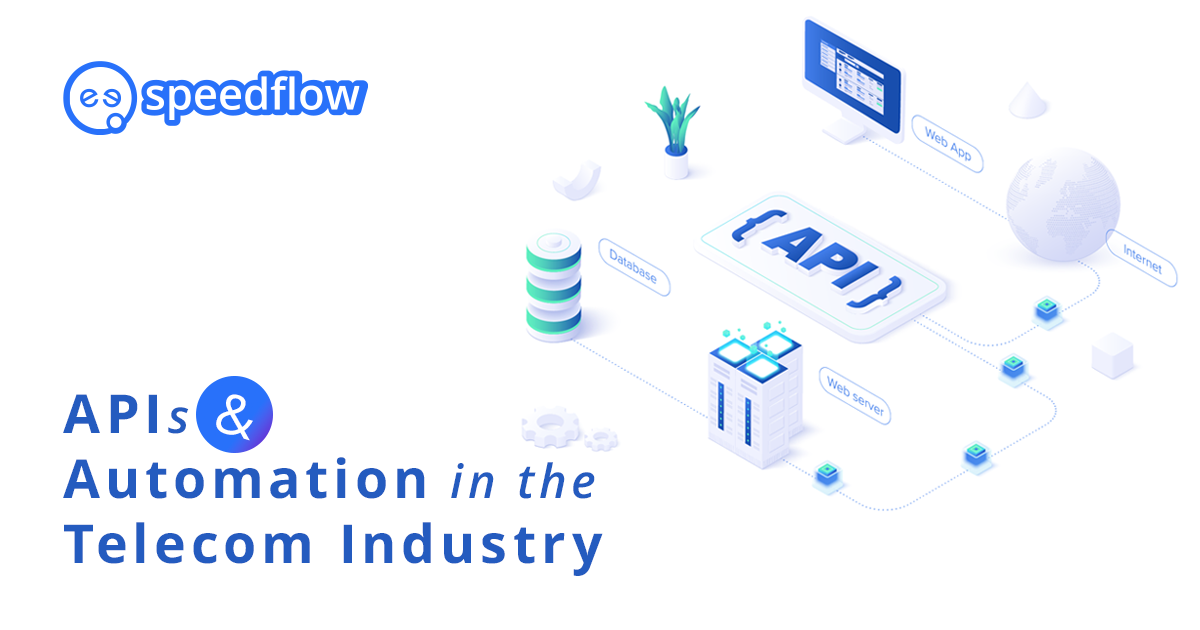Innovation is paramount for companies seeking to maintain a competitive edge. The integration of automation and APIs has emerged as a transformative force, empowering telecom operators to revolutionize their services and drive growth. As telecom networks evolve, the adoption of these technologies is not just beneficial but essential for staying ahead in a rapidly changing industry landscape.
From optimizing network operations to delivering seamless customer experiences, automation plays a pivotal role in modern telecom networks. The infusion of smart contracts and blockchain technology further enhances these capabilities, offering a robust foundation for future growth.
Empowering Networks with Automation
Automation has become indispensable in modern telecom networks, enabling operators to streamline processes and deliver superior services. By automating routine tasks such as configuration, management, and deployment, operators can significantly improve efficiency and service availability. This not only reduces operational costs but also minimizes human errors, leading to more reliable and consistent services.
One key area where automation is making a significant impact is in network management. Automated systems can monitor network performance in real-time, identifying and addressing issues before they affect users. This proactive approach to maintenance helps in preventing outages and maintaining high service quality.
However, implementing automation comes with its set of challenges. Operators face hurdles in integrating inter- and intra-provider APIs seamlessly. Building robust APIs requires careful planning and coordination among stakeholders. Overcoming compatibility issues and ensuring interoperability between different systems are crucial steps in the process. Additionally, there is a need for continuous monitoring and updating of APIs to adapt to new technologies and standards.
Smart Contracts and Blockchain in Telecom
Smart contracts and blockchain technology are being embraced to transform telecom services. Smart contracts provide a reliable and transparent method for managing transactions and agreements by encoding the terms of the agreement directly into code. This automation reduces the need for intermediaries, speeds up processes, and lowers costs.
In the telecom industry, smart contracts are utilized for a range of purposes such as billing, identity verification, and network management. Through the implementation of smart contracts, telecom companies can streamline processes, cut down on expenses, eliminate mistakes, and foster a greater sense of trust and transparency in transactions. For example, smart contracts can automate the billing process, ensuring that charges are accurate and reducing the risk of human error.
The telecom sector has the potential to be transformed by blockchain technology, thanks to its decentralized and immutable ledger. Blockchain technology provides a variety of advantages for telecom operators, including data security and safe peer-to-peer transactions. By using blockchain, telecom companies can improve data privacy, reduce fraud, and optimize operations.
One promising application of blockchain in telecom is in the area of identity management. Blockchain can provide a secure and decentralized way to verify user identities, reducing the risk of identity theft and fraud. This is particularly important as telecom operators handle sensitive customer data.
Catering to Generation Z
Generation Z, being the first to grow up in a digital world, possesses unique preferences and expectations in regards to technology. This generation that is well-versed in technology appreciates the importance of innovation, personalized solutions, and smooth digital interactions. Telecom companies must possess a comprehensive understanding of the preferences and behaviors of Gen Z in order to effectively cater to their needs.
APIs are essential for ensuring that telecom services are tailored to meet the specific needs and preferences of Gen Z. Through the provision of user-friendly APIs and developer-centric platforms, telecom companies have the ability to empower the next generation of developers to craft groundbreaking solutions and applications. This not only enhances the service offerings but also fosters a community of innovation around the telecom ecosystem.
In addition, the implementation of personalized services and adaptable subscription models has the potential to appeal to Gen Z customers and foster a sense of loyalty among them. For instance, telecom operators can use data analytics to offer customized plans and services that match individual usage patterns and preferences. This level of personalization is crucial for retaining the attention and loyalty of Gen Z consumers.
The Path Forward
The combination of automation, APIs, smart contracts, and blockchain technology is completely transforming the telecom industry. Embracing these technologies and strategies enables telecom companies to achieve digital transformation, improve operational efficiency, and provide exceptional customer experiences in today’s highly competitive market.
Driving Digital Transformation
Digital transformation is a journey that requires a strategic approach. Telecom operators must invest in modern infrastructure, adopt agile methodologies, and foster a culture of continuous innovation. By leveraging automation and APIs, operators can create a more agile and responsive network that can quickly adapt to changing market demands.
Enhancing Operational Efficiency
Operational efficiency is key to staying competitive in the telecom industry. Automation helps reduce manual interventions, speeding up processes and reducing costs. Smart contracts and blockchain technology further enhance efficiency by automating transactions and ensuring data integrity. Together, these technologies enable telecom operators to deliver high-quality services while maintaining cost-effectiveness.
Delivering Exceptional Customer Experiences
In a market where customer expectations are constantly rising, delivering exceptional customer experiences is crucial. APIs allow telecom operators to offer personalized services, while automation ensures that these services are delivered seamlessly. Blockchain technology enhances trust and transparency, which are essential for building strong customer relationships.
Overcoming Challenges
While the benefits of automation and APIs are clear, there are challenges that telecom operators must overcome. Integrating new technologies with legacy systems can be complex and time-consuming. Ensuring data security and privacy is another major concern, especially as cyber threats continue to evolve. Telecom operators must also navigate regulatory requirements, which can vary significantly across different regions.
Building a Future-Ready Telecom Network
To build a future-ready telecom network, operators must focus on innovation and collaboration. Partnering with technology providers, startups, and other stakeholders can help accelerate the adoption of new technologies. Investing in talent development and fostering a culture of innovation are also critical for staying ahead of the curve.
Conclusion
The integration of automation and APIs is revolutionizing the telecom industry, driving growth and innovation. By leveraging these technologies, telecom operators can optimize their networks, enhance operational efficiency, and deliver exceptional customer experiences. The adoption of smart contracts and blockchain technology further strengthens these capabilities, providing a solid foundation for future growth. As the telecom industry continues to evolve, embracing these transformative technologies will be key to maintaining a competitive edge and achieving long-term success.




